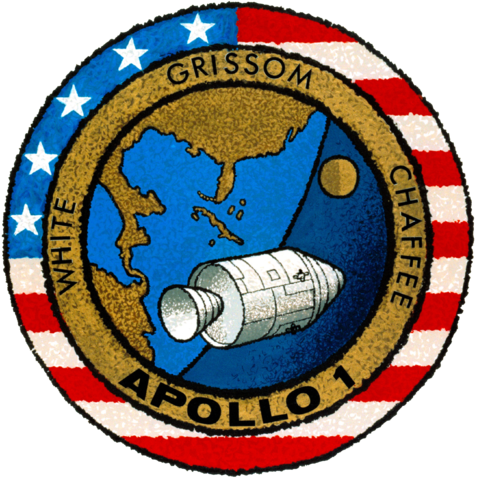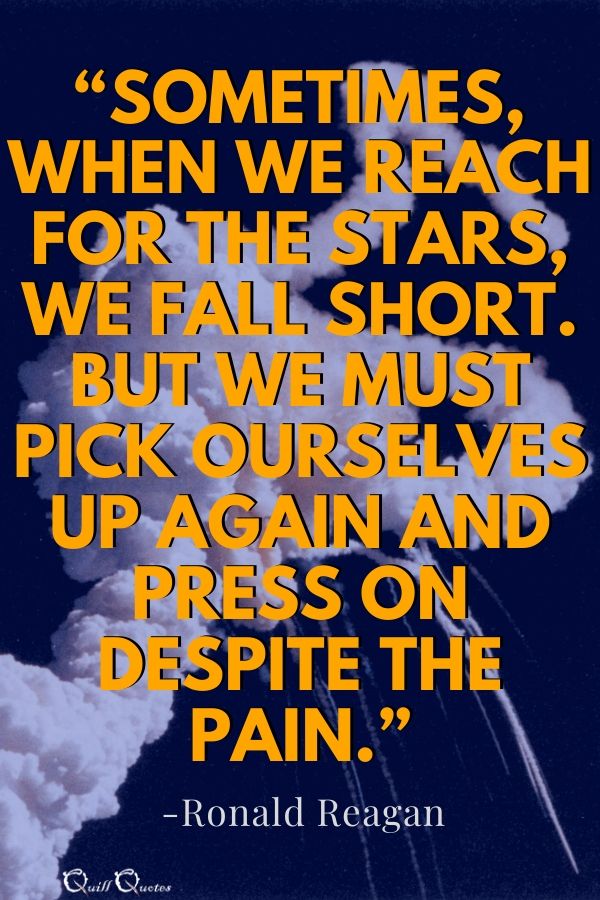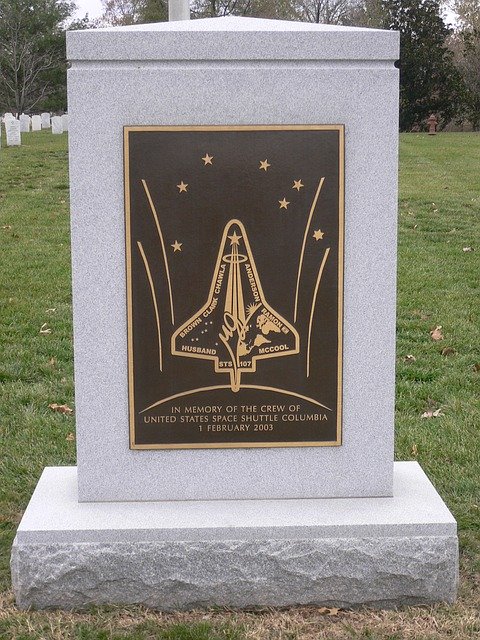There is always much to learn from quotes and their historical significance. Read on for a collection of quotes and general history from January 26th – February 1st.

January 26, 1924
“I don’t even know if you can blink in a hundredth of a second, and that’s what it comes down to in speed skating.”
– Brittany Bowe
On January 26, 1924, American speed skater Charles Jewtraw won the first gold medal of the first Winter Olympics. He won the men’s 500 meter by 0.2 seconds, later finishing 8th in the 1500 m and 13th in the 5000 m. The Games were held in Chamonix, France in association with the 1924 Summer Olympics as the “International Winter Sports Week.” It was only after the success of the event that it was retroactively designated as the I Olympic Winter Games.
January 27, 1967
“You sort of have to put that out of your mind. There’s always a possibility that you can have a catastrophic failure, of course; this can happen on any flight; it can happen on the last one as well as the first one. So, you just plan as best you can to take care of all these eventualities, and you get a well-trained crew and you go fly.”
– Virgil “Gus” Grissom
On January 27, 1967, the three Apollo 1 crew members, Virgil “Gus” Grissom, Ed White, and Roger Chaffee, died in a cabin fire during a launch rehearsal test. The fire, caused by an electrical spark, spread quickly due to the use of combustible materials and a high pressure, pure oxygen atmosphere in the cabin. Escape or rescue was prevented by the plug door hatch design which could not be opened against the internal pressure and poor emergency preparedness. The accident led to many improvements to NASA’s procedures and the command module’s design, suspending crewed Apollo missions for 20 months while the investigation and remedies were completed. Although the mission never flew and was initially designated AS-204, after three prior uncrewed Apollo missions, NASA officially recorded the mission as Apollo 1, “first crewed Apollo Saturn flight – failed on ground test”, in honor of the crew after the fire.

January 28, 1986
“I want to say something to the schoolchildren of America who were watching the live coverage of the shuttle’s takeoff. I know it is hard to understand, but sometimes painful things like this happen. It’s all part of the process of exploration and discovery. It’s all part of taking a chance and expanding man’s horizons. The future doesn’t belong to the fainthearted; it belongs to the brave. The Challenger crew was pulling us into the future, and we’ll continue to follow them.”
– President Ronald Reagan
The Challenger disaster occurred on January 28, 1986, when the Space Shuttle broke apart 73 seconds into flight, killing all seven crew members. The crew consisted of Francis R. Scobee, Michael J. Smith, Ronald McNair, Ellison Onizuka, Judith Resnik, Gregory Jarvis, and Christa McAuliffe, who would have been the first teacher in space. The failure was caused by a leaking joint in the right solid rocket booster (SRB), which allowed pressurized burning gas to escape and compromise the external fuel tank. The potentially catastrophic flaw in the SRB joint design had been known since 1977, but was deemed an acceptable flight risk and remained unresolved. Furthermore, the joint’s O-ring seals were operating well below their designed temperature due to the unusually cold conditions that day. Although both facts were known prior to the accident, NASA violated many of its own safety rules and failed to adequately report these technical concerns. Thus, the Challenger disaster is often discussed as a case study on engineering safety and workplace ethics.

January 29, 1850
“The Fugitive Slave Act, the abolition of the slave trade in the District of Columbia, the admission of California as a free state, and even the application of the formula of popular sovereignty to the territories were all less important than the least remembered component of the Compromise of 1850—the statute by which Texas relinquished its claims to much of New Mexico in return for federal assumption of the debts.”
– Mark Stegmaier
On January 29, 1850, U.S. Senator Henry Clay proposed the Compromise of 1850, which defused tensions between slave and free states, effectively delaying the Civil War. The plan was a package deal including California’s admission as a free state, Texas relinquishing its claims to the territories acquired in the Mexican-American War in exchange for debt relief, the establishment of New Mexico Territory and Utah Territory, a ban on the slave trade in Washington, D.C., and a more stringent fugitive slave law. Also important, the new territories were established under the concept of popular sovereignty where the people of each territory would decide whether or not to permit slavery. While the proposal initially failed as a package deal, each part was eventually passed on its own.
January 30, 1948
“Friends and comrades, the light has gone out of our lives, and there is darkness everywhere, and I do not quite know what to tell you or how to say it. Our beloved leader, Bapu as we called him, the father of the nation, is no more. Perhaps I am wrong to say that; nevertheless, we will not see him again, as we have seen him for these many years, we will not run to him for advice or seek solace from him, and that is a terrible blow, not only for me, but for millions and millions in this country.”
– Jawaharlal Nehru, Prime Minister of India
Mahatma Gandhi was assassinated on January 30, 1948, on the grounds of Birla House (now Gandhi Smriti) in New Delhi. His assassin, Nathuram Godse, advocated Hindu nationalism and believed Gandhi was too accommodating to Muslims during the Partition of India, which split off Muslim-majority Pakistan. Gandhi was born and raised in India but first came to fame in South Africa where he first employed nonviolent protests in a campaign for civil rights. After 21 years in South Africa, he returned to India, at age 45. He soon began organizing the poor to protest excessive land taxes and discrimination. In 1921, he assumed leadership of the Indian National Congress and led a nationwide campaign for Swaraj or self-rule. India finally gained independence from Britain in August 1947, and, although never made official, was commonly called Bapu (father) and considered Father of the Nation.


January 31, 1943
“One can’t help feeling it’s an invitation to suicide. However I’m not going to do them such a favour.”
– Friedrich Paulus
On January 31, 1943, German General Friedrich Paulus was captured and surrendered to Soviet forces in Stalingrad during World War II. That same day, he had been informed of his promotion to field marshal by Adolf Hitler, with an emphasis on the fact that a German field marshal had never been captured alive. Despite being surrounded with little hope of victory, Paulus had continually followed orders to hold the German defense of Stalingrad but refused to commit suicide as Hitler’s promotion implied. After his surrender, Paulus eventually became a vocal critic of the Nazi regime while in Soviet captivity during the war and later served as a witness for the prosecution at the Nuremberg Trials.
February 1, 2003
“My fellow Americans, this day has brought terrible news, and great sadness to our country. At 9 o’clock this morning, Mission Control in Houston lost contact with our Space Shuttle Columbia. A short time later, debris was seen falling from the skies above Texas. The Columbia is lost; there are no survivors.”
– President George W. Bush
On February 1, 2003, the Space Shuttle Columbia disintegrated during re-entry, killing all seven crew members. These crew members were Rick Husband, William C. McCool, Michael P. Anderson, Kalpana Chawla, David M. Brown, Laurel Clark, and Ilan Ramon. The failure was caused by damage sustained to the shuttle’s left wing when a piece of foam insulation broke off from the external tank during launch on January 16th. This damage allowed hot atmospheric gasses to penetrate the wing’s heat shield during re-entry, destroying the internal structure. Although launch footage showed the impact on the wing, NASA managers limited the investigation prior to re-entry, believing nothing could be done if damage was found. Following the Columbia disaster, the Space Shuttle program was grounded for 29 months. Once flights resumed on July 26, 2005, a thorough on-orbit inspection was implemented to check the thermal protection system for damage prior to re-entry and a designated rescue mission was required to be ready in case damage was found.

In case you missed last week’s quotes, see History January 19th – 25th.
To never miss a Quill Quotes post, please subscribe via email and/or follow us on social media!
I remember the challenger blowing up right after take-off. It was the first time i actually witnessed a terrible thing happening with loss of life right before my eyes. I also remember thinking about all the school children witnessing this. The brave astronauts who later guided a ship up got my attention every time. Were they thinking about the challenger and the columbia?